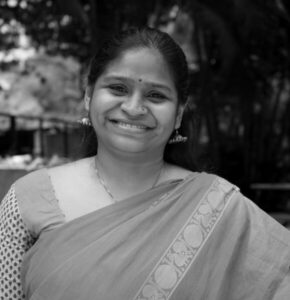In a world that often equates success with academic excellence and material wealth, a growing movement sparked by Dream a Dream is challenging us to reconsider our definition of success, particularly within the education system. This shift in perspective is not just about changing metrics; it’s about reimagining the very purpose of education and how we measure human potential. However, like everything we do, the journey to redefine success begins with our own personal reflection. As a senior professional in the social impact space, my own understanding of success has evolved dramatically over time. From childhood triumphs like learning to ride a bicycle to the professional achievements of adulthood, the concept of success has been a constantly shifting target. In many ways, my personal evolution mirrors a larger societal need to reevaluate our collective definition of success.
Dream a Dream is an organization based in India that is working to transform the purpose and experience of education for over 130 million children. Through our programs, research, and experiences with young people, we recognized that even as we were equipping young people with life skills, we could address only part of the challenge. Systemic barriers and structural inequities continued to dictate life choices for many young individuals. We knew that there was a great requirement of an actual cultural shift to build spaces where we could offer acceptance and support for young people from all backgrounds. Spaces where we would intentionally design our institutions, policies, and systems—keeping equity at its core. Young people are currently entering systems that are essentially mired in discrimination. There is an urgent need for a larger systemic transformation to happen where we all take equal ownership of walking the difficult journey of creating inclusive, thriving spaces.
We believe that dialogue and conversations can create pathways towards this because only when we listen to each other can we feel compelled to move. Therefore, the Dream a Dream team embarked upon holding spaces and conversations with over 100 stakeholders, including young people, parents, educators, community leaders, and policymakers. What came forward was a diverse range of perspectives on what constitutes success:
- Sense of Belonging: 18% of respondents associated success with having social value and feeling connected to a community.
- Happiness: 16% equated success with personal and family happiness.
- Wellbeing: Another 16% linked success to overall well-being and life skills like self-awareness and resilience.
- Sense of Agency: 16% viewed success as having the freedom to make choices and grow.
- Financial Security: 13% associated success with economic stability.
- Having a Purpose: 7% connected success to having and achieving goals.
These varied definitions challenged the narrow, linear narrative of success that dominates our education system. As one parent from our program poignantly noted, “People who come from adversity never really have the time to be successful.”
There is an urgent need for a larger systemic transformation to happen where we all take equal ownership of walking the difficult journey of creating inclusive, thriving spaces.
Dr. Varsha PillaI
We concede that our movement to redefine success is not without its own set of challenges. Many stakeholders, especially those within the educational ecosystem, find it uncomfortable to question deeply ingrained ideas about success. However, there’s a growing recognition of the need to reimagine education with a focus on holistic development. Dr. Avinav Kumar, State Incharge of Quality and Inclusive Education in Jharkhand, India, emphasizes this point: “The definition of success has to be redefined across elementary, middle, and higher educational institutes so that we can get to the true core of success. If marks do not define success, then what does?” This question echoes the concerns of many educators and parents. A senior bureaucrat in the education department shared a telling anecdote about a student crying over losing one mark out of 100, wondering, “Have we done this to young people?” As we continue this journey of redefinition, several key insights emerge:
- Success is not static or uniform; it’s a continuous, personal journey.
- For many facing adversity, success is about financial security and ensuring better opportunities for their children.
- Some view success not in terms of personal gain, but in their ability to contribute to society.
- The process of reflecting on and articulating one’s definition of success can be challenging, especially for those who have never had the luxury to pause and consider it.
The process of redefining success is more than just changing sheer metrics; it’s about shifting our entire paradigm of education and human potential. As we move forward, we must create spaces for reflection, challenge our assumptions, and work towards an inclusive understanding of success that allows all young people to thrive.
I recall a particular incident that further helped me understand how we frame failure for our young people and how shame or blame is attributed. Recently, during my daughter’s Karate black belt ceremony there was a set of 10 young people who were called on stage and they were given certificates stating that they failed in the final test and they did not qualify. Most of the young people teared up and some turned their back to the audience comprising parents and other young people. It was only after an excruciating ten minutes had passed that they were told that it was a prank on them and they had actually secured an A+ in their tests. We then saw laughter and smiles on their faces! And while I did think that it was a cruel joke, it got me thinking as well: Could redefining success be all about removing the shame attached to failure? Could it be about reframing the way our system looks at failure itself? As one young person from Dream a Dream aptly put it, “Success is a journey, there is no specific endpoint.” In embracing this perspective, we open a world of possibilities for our youth and our society.




